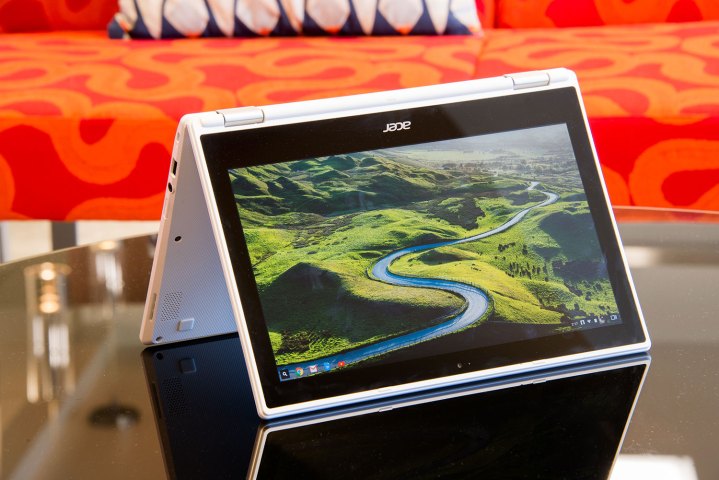
Updated on 05-19-2016 by Kyle Wiggers: Added the update’s time frame and a list of supported Chromebooks.
The Mountain View, California, company hasn’t formally announced the integration yet, but a description for a Google I/O Chrome lays out the essentials:
“Today … we’re adding the best mobile app experiences in the world, Android apps and the Google Play store, to the best browser in the world, Chrome! Come to this session and test your Android apps for Chrome OS. You will get hands-on help from our friendly engineers on how to optimize your Android app for Chromebooks.”
Google says the upgrade will land in mid-June for three Chromebook models — the Acer Chromebook R11, Asus Chromebook Flip, and Google Chromebook Pixel (2015) — in mid-June, with more to gain Play Store support in the coming months.
The benefits of Play Store integration are numerous. Google will likely announce the details at Thursday’s session, but Chrome OS could theoretically tap into the Play Store’s broader payment support — the stagnating Google Checkout, the Google Web Store’s payments platform of choice, supports far fewer countries (36 versus the Play Store’s 136) and payment methods (no prepaid gift cards, for one) than the Play Store. And developers might be able to take advantage of the Play Store’s significantly more mature deployment features, including A/B testing, staged app rollouts, developer replies, and others.
News of the Play Store’s arrival on Chrome isn’t exactly earth-shattering. Last month, eagle-eyed Reddit user TheWiseYoda spied a setting in an early release of Chrome OS — version 51 in the Developer Channel — that referenced a way to enable Android Apps on Chromebook devices. It wasn’t functional, but several users were able to launch from it a “getting started” tutorial with instructions on configuring a Chrome OS variant of Google’s Play Store.
The groundwork for the migration has long been laid. In 2014, Google launched a beta of App Runtime for Chrome (ARC), a toolkit aimed at assisting developers in building Chrome-compatible versions of their native Android apps. Later that year, Google began letting publishers seed Android apps to seed users, but in a limited fashion — installs were restricted to the Chrome Web Store. And last year, it added support within Chrome for Google Play Services, a proprietary collection of services for authentication, contact synchronization, and location-based systems, and other APIs on which many apps rely.
The Play Store may be just the beginning of a bigger Android and Chrome OS merger to come, if the rumors are true. Last year, the Wall Street Journal reported that Google had been working for two years to merge Chrome OS and Android, and that it planned to launch the result — a new, unified operating system that runs on PCs — in 2017.


